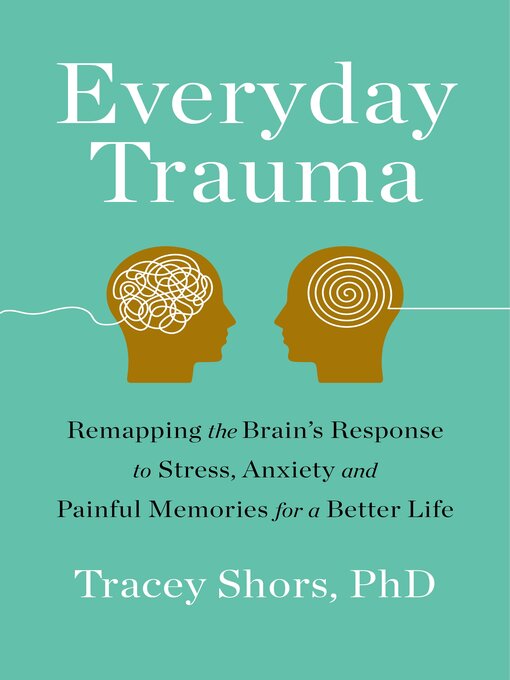A neuroscientist explores how trauma impacts the brain, especially for women—and how we can learn to heal ourselves
Everyone experiences trauma. Whether a specific harrowing event or a series of stressful moments that culminate over time, trauma can echo and etch itself into our brain as we remember it again and again throughout our lives.
In Everyday Trauma, neuroscientist Dr. Tracey Shors examines trauma with a focus on its pervasive nature—how it can happen at any time, through big or small events, and how it often reappears in the form of encoded memory. Her research reveals that when we are reminded of our trauma, reliving that tragic moment copies yet another memory of it in our brain, making it that much more difficult to forget. Dr. Shors also explores the neuroscience behind why women in particular are more vulnerable to stress and traumatic events, setting them up to be three times more likely than men to suffer PTSD.
With potential long-term consequences such as addiction, anxiety, depression, and PTSD, trauma can have a lasting impact on both the brain and body. Dr. Shors illuminates the effective tools that can reduce the repetitive thoughts that reinforce our traumas, including cognitive-based therapies and trauma-informed care such as her own groundbreaking program, a combination of mental and physical training called MAP Training.
By understanding how our brain responds to trauma and practicing proven techniques that can train our brains and help us let go of our tragic memories—whatever they may be—we are better equipped to leave our traumatic pasts behind and live in a brighter present.
- Available now
- New eBook additions
- New kids additions
- New teen additions
- Most popular
- Try something different
- Local History
- Project Gutenberg
- See all ebooks collections
- New audiobook additions
- Available now
- New kids additions
- New teen additions
- Most popular
- Try something different
- See all audiobooks collections
- Latest Magazine Issues
- Celebrity
- Canadian Magazines
- Food and Cooking
- Sports
- Children's Magazines
- Health & Fitness
- Chinese Magazines
- See all magazines collections

